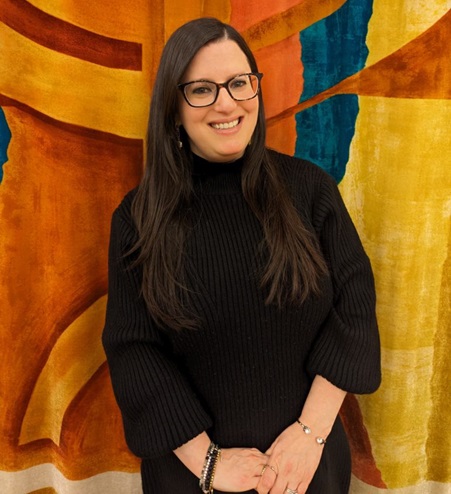It’s Friday evening, 13 June. I’ve just sat down to rewrite this sermon after putting my toddler, Jonah, to bed for the evening. In the background, an Israeli news anchor reads with quiet urgency a list of locations where missile strikes have been confirmed – shattering the peace of Shabbat.
Every night since Jonah was an infant, we have sung him these words before he goes to sleep:
Ushmor tzeiteinu u’voeinu l’chayim u’lshalom m’atah v’ad olam.
Guard our going out and our coming in, for life and for peace, now and forevermore.
These words come from the Hashkiveinu prayer we recite on Shabbat and weekday evenings. When it was first composed, the world beyond the synagogue felt especially frightening. People walked home from synagogue down long, dark roads, facing threats from wild animals, hidden dangers, or those who might harm them. Safety was never guaranteed.
Hashkiveinu is a prayer for protection. Jonah doesn’t know what it means yet, even though he sings along. But I know that when I sing it, I feel as though I am making a tenuous promise: that I can keep him completely safe.
This week ended with a wave of devastating news. On Thursday, we learned of the tragic crash of an Air India flight, which claimed 279 lives and left at least 50 others injured. A 40-year-old British passenger was the sole survivor. Today, we hold him and the families of all those killed or wounded in our hearts as they begin the long, painful journey of grief and healing.
Just hours later, we learned that Israel had launched large-scale attacks on multiple sites in Iran, targeting military infrastructure, personnel, and nuclear facilities. Iran responded with its own strikes, sending much of the Israeli population into bomb shelters and injuring 41 people. This marks the most serious escalation between the two countries in recent years, and it is still unfolding.
Our hearts are heavy with fear: for soldiers, for civilians, for families whose homes have become battlegrounds, for friends and loved ones stranded half a world away. There is grief. There is anger. There is confusion. How do we hold all of this?
We learn in Talmud, Masechet Shevuot 39a: “kol Yisrael arevim zeh bazeh”: all of Israel is responsible for one another. The word arevim means “bound together.” It reminds us that even in the midst of the most divisive of conversations, we are still bound up in one another’s wellbeing.
This doesn’t mean we all agree. We will never all agree. But we can choose the path of empathy: remaining attuned to suffering wherever it lives. Even, and especially, when we feel powerless in the face of a news cycle that feels relentless and overwhelming.
There is a Midrash you may have heard before: when the Israelites crossed the sea, the angels rejoiced and sang. But God silenced them, saying: “My children are drowning, and you sing songs?” Maybe this is one of those times: not a time for easy answers, but for silence, for prayer, and for empathy.
At this time, we pray for Israel and, crucially, we pray for all innocent civilians in the Middle East whose lives have been upended and whose families have been torn apart by war.
And we pray for peace upon us, upon Israel, and upon all the world: not just in the songs we sing to our children, but a real and lasting peace in our own lifetimes.
Ken yehi ratzon. May this be God’s will.



